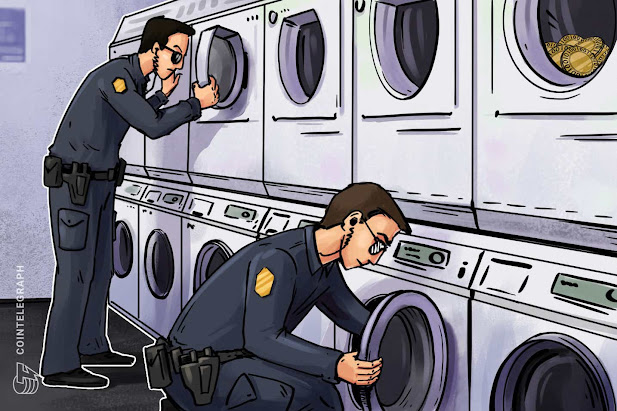''' '' CRYPTO -SANCTIONED-
CROONS '' '''
IN EARLY FEBRUARY - INDEPENDENT SANCTION MONITORS told the United Nations Security Council that North Korea was using cryptocurrencies to fund its nuclear and ballistic missile program, according to Reuters.
A spokesman for Norway's permanent mission to the U.N. confirmed the existence of the report which has not yet been made public. Last May, the consulting firm Elliptic, in Cape Town, described how Iran was using revenue from Bitcoin mining to make up for the limitations on its ability to sell oil because of sanctions.
IF BANKS ARE THE EYES AND EARS OF GOVERNMENTS in enforcing sanctions, the explosion of digital currencies is blinding them.
CRYPTO is a way to dodge sanctions. The difficulty of tracking digital currencies opens doors unavailable in the past.
To apply sanctions, a government makes a list of people and businesses its citizens must avoid.Anyone caught engaging with a listed entity faces a heavy fines. But the key to any effective sanctions programs is the global financial system.
Banks worldwide play a major role in enforcement : They see where money comes from and where it's bound, and laws against money laundering require them to block transactions with sanctioned entities and to report what they see to the authorities.
Should you choose to evade sanctions, you have to innovate and create multiple cryptocurrency-related tools at your disposal, experts say. All you have to do is find ways to trade without touching the dollar.
And while cryptocurrency transactions are recorded on the underlying blockchain, making them transparent, new tools developed by some countries and the market can help mask the origin of such transactions.
That would allow sanctioned entities to trade without detection.
There are precedents for such work arounds. Iran and North Korea are among countries that have used digital currencies to mitigate the effects of Western sanctions, a trend that U.S. and United Nations officials have recently observed.
North Korea, for instance, has used ransomware to steal cryptocurrency to finance its nuclear program, according to a U.N.report.
Russia could find willing partners in other nations subject to U.S.sanctions, including Iran, that are also developing government backed digital currencies. China, Russia's largest trading partner in both imports and exports, according to the World Bank, has already introduced a central bank digital currency.
The country's leader, Xi Jinping, recently described China's relationship with Russia as having ''no limits''.
The developing system of central banks' directly exchanging digital currencies creates new risks, said Yaya Fanusie, a fellow at the Center for a New American Security in Washington who has studied the effects of cryptocurrency on sanctions.
Russia is at the of the growing ransomware industry. Last year, about 74 percent of global ransomware revenue, more than $400 million worth of cryptocurrency, went to entities that are probably affiliated with Russia in some way, according to a recent report by the blockchain-tracking firm Chainalysis.
Illegal funds have also flowed into Russia through a web marketplace called Hydra, which is powered by cryptocurrency and handled more than $1 billion worth of sales in 2020, according to Chainalysis.
''We know that there's no question asked, and we know that Hydra operates not just throughout Eastern Europe but throughout western Europe,'' said Kim Grauer, the director of research at Chainalysis.
DIGITAL CURRENCIES all use blockchain technology, a form of computer code that is publicly viewable by anyone, anywhere. The public ledger keeps track of the movements of individual digital coins from one ''wallet'' - as online repositories for digital assets are called - to another.
In theory, this should let the authorities track all crypto transactions and keep sanctioned entities from completing them.
BUT the technology behind Hydra masks the source of transactions, offering a potential tool for Russian users to move money outside the country's borders. On its own, Hydra is not yet big enough to handle the volume of transactions that Russia would need to successfully evade sanctions.
But savvy cryptocurrency users can find ways around a blacklist.
The Honour and Serving of the Latest Global Operational Research on Cryptocurrencies, Sanctions and The-State-of-the-World, continues. The World Students Society thanks authors Emily Flitter and David Yaffe-Ballany.
With respectful dedication to The Students, Professors and Teachers of the world. See Ya all prepare and register for Great Global Elections on The World Students Society - for every subject in the world : wssciw.blogspot.com and Twitter - E-!WOW! - The Ecosystem 2011 :
Good Night and God Bless
SAM Daily Times - the Voice of the Voiceless

.png)


0 comments:
Post a Comment
Grace A Comment!